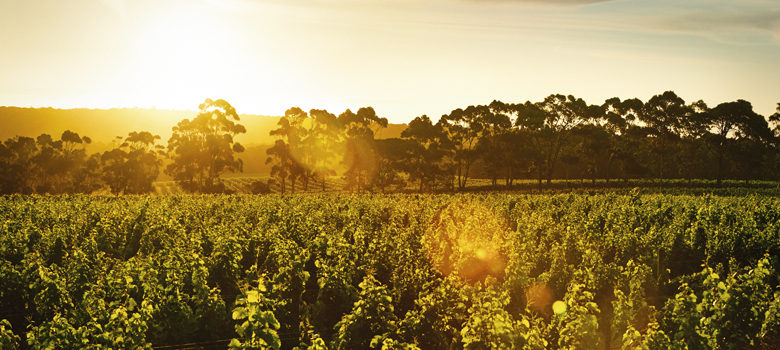
Wine
Putting Cape Mentelle on the Map
For 50 years, Cape Mentelle has been showcasing the best of Margaret River, built on a proud foundation of family and innovation.
Shop Best Australian Wine
Every Friday afternoon, you’ll find the Cape Mentelle team on the beach enjoying a barbeque. It’s an important time for them to catch-up and relax as they share a meal, and, of course, the fruits of their labour! While these days, there are no blood ties between the team members, their tight connection reflects the family ethos on which this 50-year-old winery was founded.

It was three brothers, David, Mark and Giles Hohnen, who, in 1970, planted the first 16 hectares of Margaret River vines that were the beginnings of Cape Mentelle. The land had been purchased in the 1960s by their father John.
They were pioneers, the Hohnen boys, as the founders of one of the region’s first five wineries. Back then, Margaret River was home to mainly dairy farmers and hippies, a far cry from the major wine tourism destination it is today. This meant there was no existing infrastructure and the brothers had to innovate to survive those early years.
Thankfully, David embraced the original, as former estate director Robert Mann describes. “Innovation, experimentation, that’s part of the DNA of Cape Mentelle, instigated by David. If you had a good idea, you could do it.”
A Pivotal Win

David, as winemaker, was a great experimenter, and his early plantings of Shiraz, Cabernet, Zinfandel, Sauvignon Blanc and Semillon served as his laboratory. David’s dedication to discovering the unique characteristics of Margaret River terroir was absolute. He studied each vineyard in turn to gain an understanding of the potential of the fruit and how it would contribute to the creation of a distinctive house style.
This single-minded commitment to quality paid off when, in 1983, the Cape Mentelle Cabernet Sauvignon took out Australia’s most coveted wine trophy – the Jimmy Watson. This was the first time the trophy had been awarded to a Western Australian winery. Then, in 1984, they won this most prestigious of awards again! In an interview following the second win, David said, “There’s no mysteries. It’s just hard work and applying yourself to it.”
Despite David’s matter-of-fact response, he’d pulled off an incredible feat, but this was no fluke. This was a solid nod to the fact this nascent producer was now among Australia’s finest. As current winemaker Ben Cane describes, “That really put Cape Mentelle on the map, as well as putting Margaret River on the map.”
By this stage, Cape Mentelle was rapidly expanding. Drawing on that innovative Hohnen spirit, Giles had taken on his friend and warehouse designer, Tom Roberts’ enthusiasm for earth wall construction and in 1977 they began building the winery out of stabilised earth – another first for Margaret River.
This was finished in 1981, then, in 1984, a third warehouse was added, its rammed earth walls soaring above the other buildings. The following year, David established a sister winery in New Zealand, Cloudy Bay and in 1990, a partnership was forged between Cape Mentelle and Veuve Clicquot Ponsardin.
A Pragmatic Perspective

While Cape Mentelle might have grown in size and reputation, its philosophy, much like its winery buildings, has always remained down to earth.
As David describes, “There’s a lack of pretension,” adding, “Cape Mentelle is not trendy, Cape Mentelle is still looking to Margaret River to get the best of Margaret River.”
A strong reflection of this aim is the commitment Cape Mentelle has made to sustainability. As Ben explains, “In general, we have been focussed on reducing our carbon footprint in all we do in the winery, vineyard, offices and warehouses. Solar panel installation, conversion to LED lighting, more highly detailed recycling and waste separation, compost creation, elimination of herbicide use, undervine cultivation and utilisation of sheep for winter grazing are all changes gradually introduced.”
While the Hohnen brothers may not be directly involved in Cape Mentelle today, their unwavering commitment to Margaret River quality, achieved through embracing innovation, lives on. It’s been a solid foundation for the past 50 years and remains firm as they head into the future.